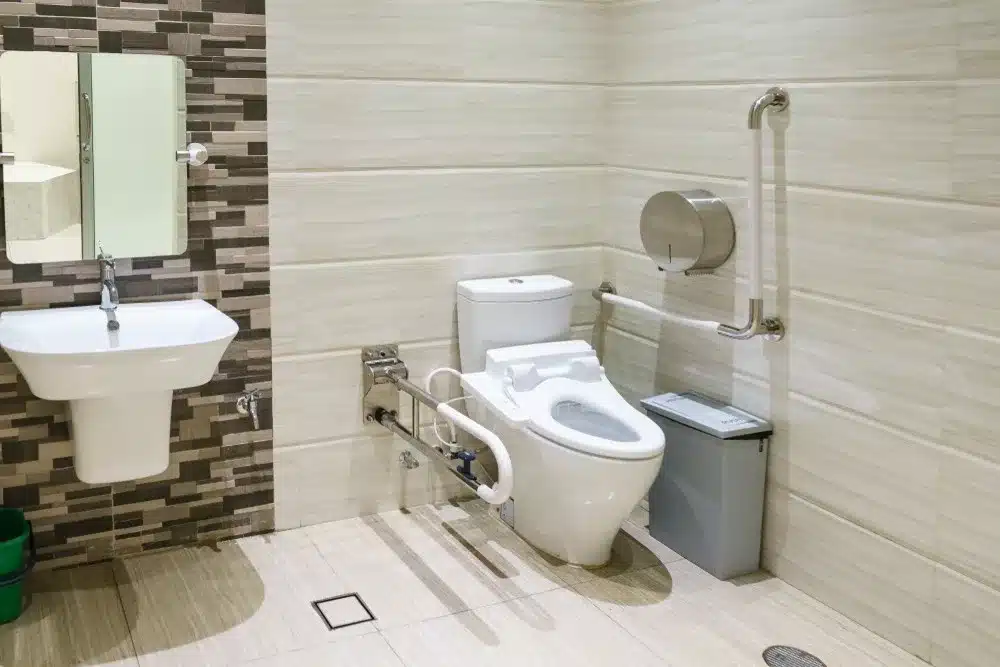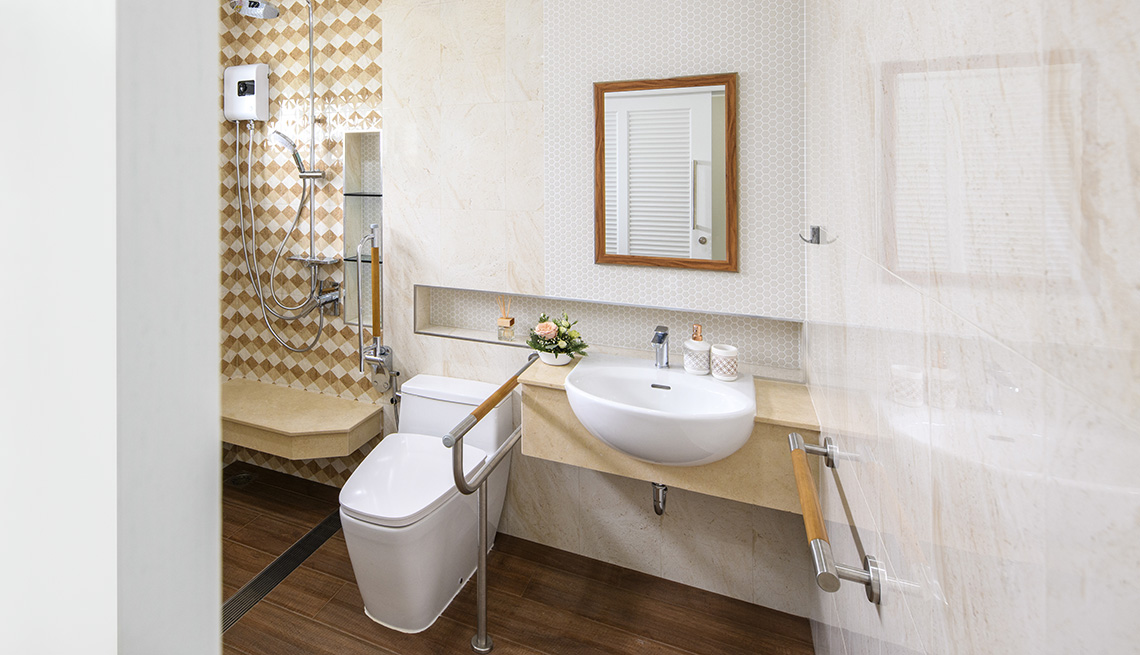In today’s world, wall-mounted support bars are becoming a necessity in ensuring safe living environments, especially for seniors. These bars are not just tools; they are lifelines that provide stability and confidence in areas such as bathrooms, hallways, and other parts of the home where slips and falls are most likely to occur. Understanding the importance and correct usage of these support bars can significantly enhance safety and independence for the elderly.

The Importance of Wall-Mounted Support Bars
Wall-mounted support bars serve as crucial safety features in homes, particularly for seniors. As people age, maintaining balance can become challenging, increasing the risk of falls. These bars offer the necessary support to prevent such accidents. By installing them in strategic locations, they provide a reliable grip, making everyday activities safer and more manageable.
Common Areas for Installation
The most common places to install wall-mounted support bars include bathrooms, near toilets, and in showers. These areas are notorious for being slippery, and having a support bar can prevent dangerous falls. Additionally, hallways and staircases can benefit from these installations, offering extra support where it’s needed the most.
Types of Wall-Mounted Support Bars
There are various types of wall-mounted support bars designed to meet different needs:
Grab Bars
These are the most common type, providing a sturdy handhold in bathrooms and other slippery areas. They come in various lengths and finishes, allowing for customization to suit any home decor.
Foldable Support Bars
Ideal for smaller spaces, these bars can be folded against the wall when not in use. They are perfect for providing support in tighter areas without being obtrusive.
Textured Support Bars
These bars have a textured surface, providing extra grip, which is especially useful in wet environments like showers.
Choosing the Right Wall-Mounted Support Bars
When selecting wall-mounted support bars, consider the specific needs of the user. It’s essential to choose bars that are durable, easy to grip, and aesthetically pleasing. Additionally, ensure they are installed correctly to offer maximum support.
Consider the User’s Needs
Different users have different needs. Consider the height, strength, and specific challenges the user faces. Customized solutions might be necessary to ensure optimal safety and comfort.
Material and Finish
Support bars come in various materials such as stainless steel, plastic, and aluminum. Choose a material that complements the home’s aesthetic while providing the necessary durability and support.
Installation Tips for Wall-Mounted Support Bars
Proper installation is crucial to ensure the effectiveness of wall-mounted support bars. Here are some tips:
Professional Installation
Whenever possible, hire a professional to install the support bars. They have the expertise to ensure the bars are securely mounted, providing the necessary support.
Correct Placement
Ensure that the bars are installed at the correct height and angle, making them easy to reach and use. Typically, they should be placed at a height that is comfortable for the user to grip.
Maintaining Wall-Mounted Support Bars
Regular maintenance of wall-mounted support bars ensures they remain effective and safe. Here are some maintenance tips:
Regular Cleaning
Regularly clean the support bars to prevent any buildup of soap or grime, which can make them slippery.
Check for Loose Screws
Periodically check the bars for loose screws or signs of wear and tear. Address any issues immediately to maintain safety.
Benefits of Wall-Mounted Support Bars
The benefits of wall-mounted support bars extend beyond just safety. They provide peace of mind for both the user and their loved ones, knowing that there is a reduced risk of falls and injuries.
Increased Independence
For seniors, maintaining independence is crucial. Wall-mounted support bars enable them to perform daily tasks without constant assistance, enhancing their quality of life.
Aesthetic Integration
Modern support bars are designed to blend seamlessly with home decor, ensuring that safety does not compromise style.
Wall-Mounted Support Bars vs. Free-Standing Bars
While both wall-mounted support bars and free-standing bars offer support, there are distinct differences:
Stability
Wall-mounted bars are generally more stable than free-standing bars, as they are securely attached to the wall, providing better support.
Space Efficiency
Wall-mounted bars are more space-efficient, making them ideal for smaller areas like bathrooms where space is limited.
Wall-Mounted Support Bars for Different Users
While primarily used by seniors, wall-mounted support bars are beneficial for anyone needing extra support, including people recovering from surgery or those with disabilities.
Seniors
For seniors, these bars provide the necessary support to navigate their homes safely, reducing the risk of falls.
People with Disabilities
Individuals with disabilities can greatly benefit from the stability that support bars provide, enhancing their ability to move around independently.
Innovations in Wall-Mounted Support Bars
As technology advances, so do the designs and features of wall-mounted support bars. Innovations include features like integrated lighting and digital alerts for extra safety.
Integrated Lighting
Some modern support bars come with LED lighting, providing visibility in low-light conditions, which is particularly useful at night.
Digital Alerts
High-tech support bars can be equipped with sensors that alert caregivers if the user needs assistance, adding an extra layer of safety.
Purchasing Wall-Mounted Support Bars
When purchasing wall-mounted support bars, consider shopping from reputable suppliers who offer quality products with warranties. Online reviews can also provide insights into the best options available.
Reputable Suppliers
Choose suppliers known for their quality and customer service to ensure you receive a reliable product that meets your needs.
Product Warranties
Opt for products that come with warranties, providing assurance of the product’s durability and quality.

FAQs
What is the best material for wall-mounted support bars?
Stainless steel is often recommended due to its durability and resistance to rust.
Can I install wall-mounted support bars myself?
While it’s possible, professional installation is recommended to ensure safety and correct placement.
Where should wall-mounted support bars be installed?
They are best installed in areas prone to slips and falls, like bathrooms and along staircases.
For more information on bathroom safety for seniors, visit Bathroom Safety Tips.
Additionally, explore shower heads and toilet frames to enhance overall safety.
This article contains affiliate links. We may earn a commission at no extra cost to you.

